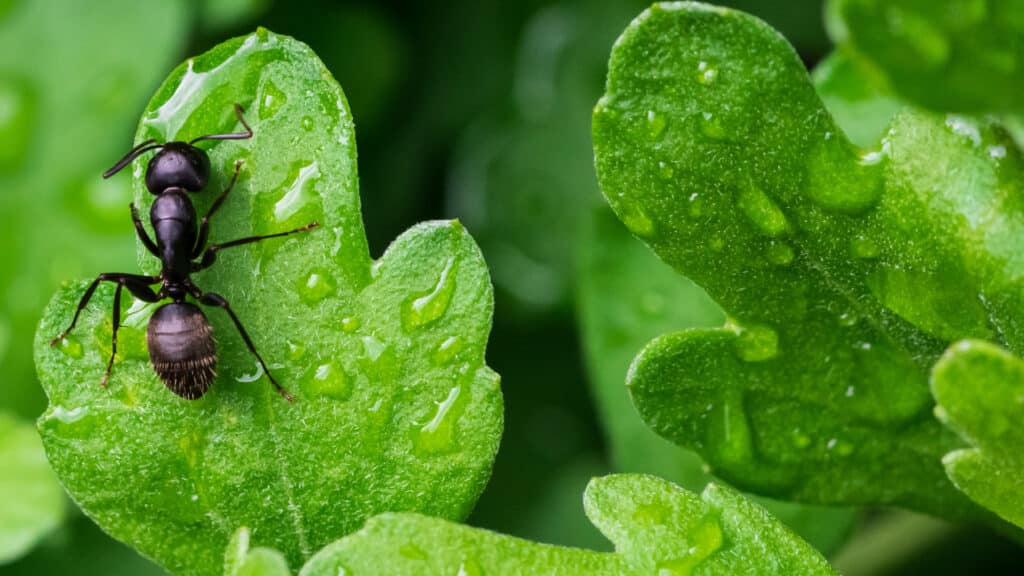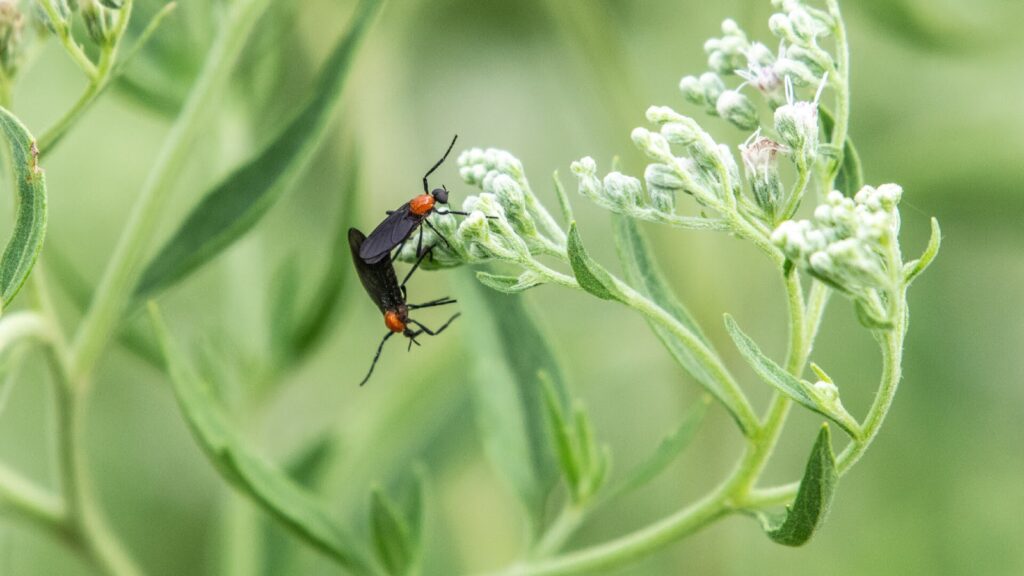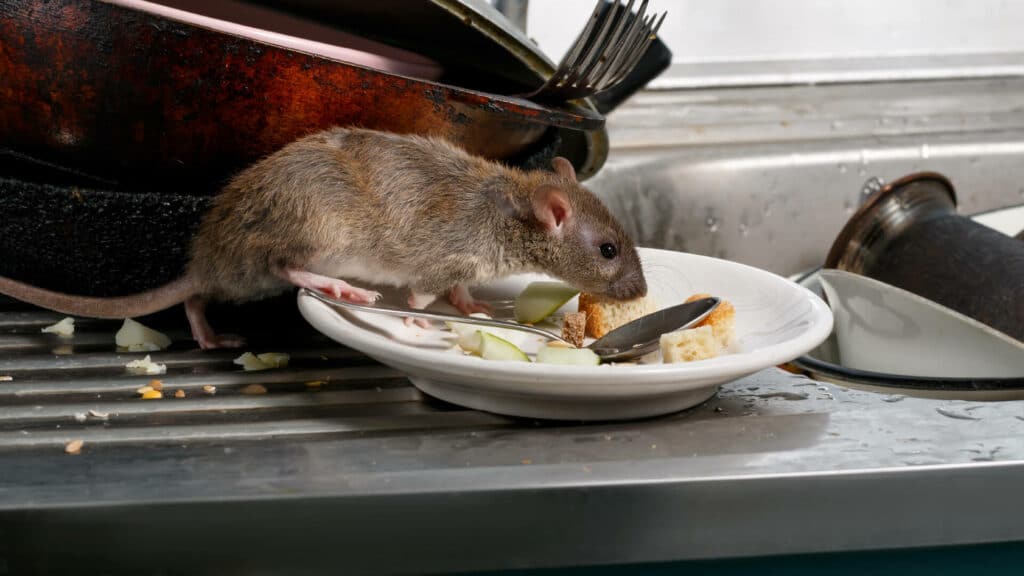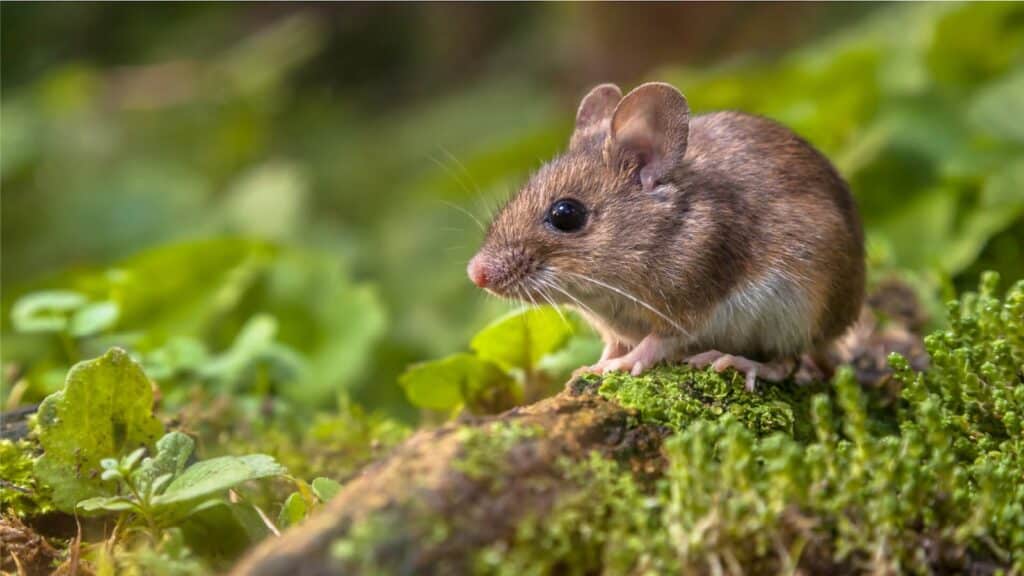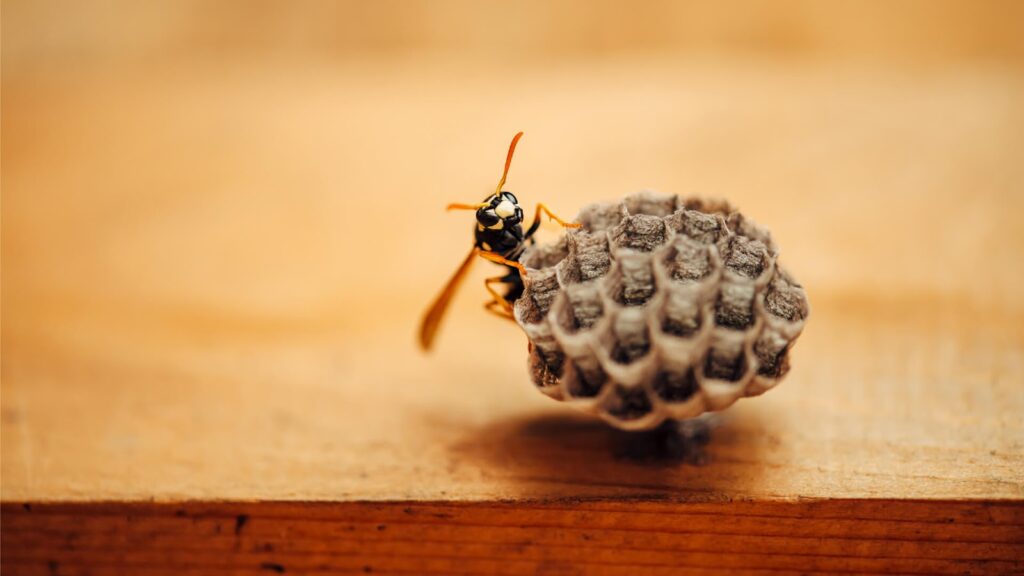Wasps are a common stinging insect that can be found during warm months. These yellow and black flying, stinging bugs create nests both above the ground as well as on the ground. They often use tree branches, porch ceilings, deck floors, rafters, eaves, and railings to build their nest. Wasps use nectar as a food source as well as other insects such as caterpillars, larvae, and flies.
Their stinger contains venom that paralyzes their prey. Unlike bees, wasps can sting multiple times. They aren’t naturally aggressive toward humans, but will sting if their nest is disturbed or if they are swatted at. Keep reading to learn how to treat a wasp sting, when they can be dangerous, and how to get rid of infestations or nests near the house.
Are Wasp Stings Dangerous?
Although wasp stings are painful, most people recover easily and quickly. They are only dangerous if you’re severely allergic. The most severe wasp sting reaction can result in anaphylaxis, which is when your body goes into shock because of the wasp venom. People with severe reactions may also experience swelling in the face or throat, hives on the body, dizziness, drop in blood pressure, stomach cramps, diarrhea, and more. These severe reactions are rare. If you have a history of anaphylaxis, make sure to carry an emergency kit in case a sting occurs.
What happens when a wasp stings you if you’re not allergic? You will simply experience a raised welt around the sting area with a white dot in the middle where their stinger came into contact with your skin. The pain and swelling will typically go away within a few hours of the sting.
How to Treat a Wasp Sting
If you’re not allergic and have a normal reaction to the sting, you can easily treat them at home. First wash the area with soap and water to remove venom, then applying a cold pack to the wound to reduce swelling and pain. After this, keep the wound clean and dry to prevent an infection (you can use a bandage if you’d like).
In addition, there are a few home remedies that can help reduce pain and swelling more quickly. Some say crushing a clove of garlic and spreading it on the wound helps reduce pain for both bee and wasp stings.
What Attracts Wasp Infestations?
Wasps are often attracted to areas near the home that they’re able to hang their nest from. These include porch ceilings, eaves, and deck railings. Many wasps use the fiber from wood to build their nests, so this will attract them even further. They will be even more attracted to your home if you have a yard with plenty of insects and nectar to eat (such as fruit trees and plants) as well as indoor shelter for the cold months (barns, sheds, and others).
Nests around your home can be dangerous if located near areas with a lot of human traffic, especially children that may have a wasp sting reaction. They tend to sting when people come too close to their nest. Luckily, there are a few ways to control wasps.
Although it’s more effective to hire professionals when performing stinger and biter extermination, there are general measures you can take to try and eliminate them. First, you should seal any cracks that can provide an entry into your home. Additionally, make sure to clean up any fruit trees or plants around your home because they love to eat fallen fruit. Finally, make sure to keep outside garbage in a tightly sealed garbage can.
If these simple fixes don’t help, professional wasp extermination is the way to go. It can be dangerous to try and eliminate wasps without proper training. Aptive Environmental has offices all over the United States and is dedicated to providing professional, effective pest services. We are so confident in our services, we will come back at no additional cost if the bugs come back!
